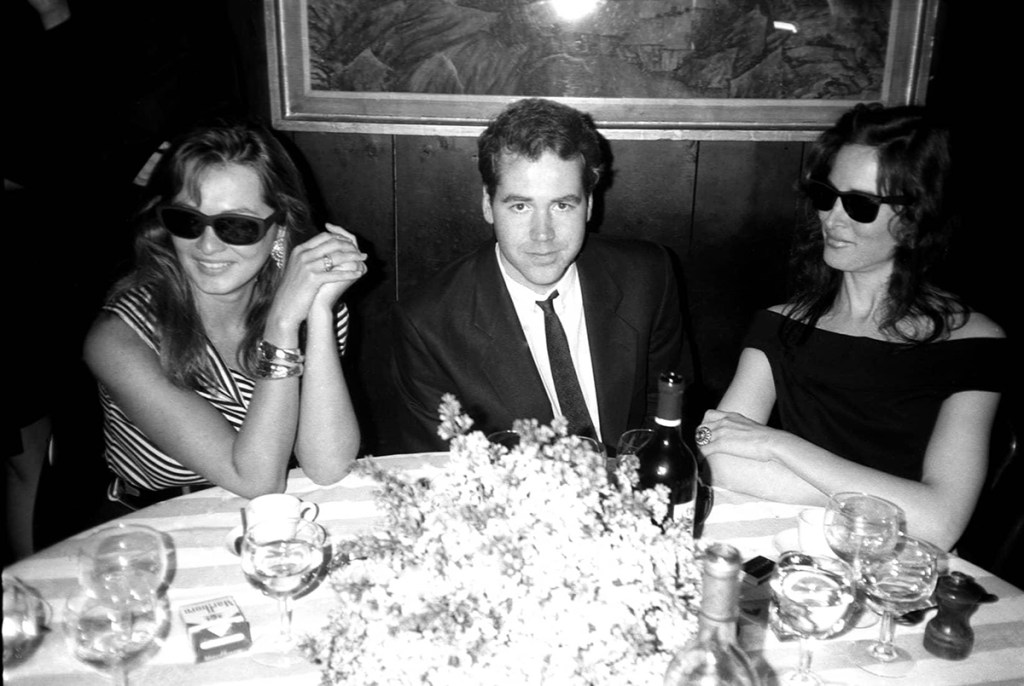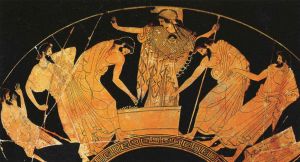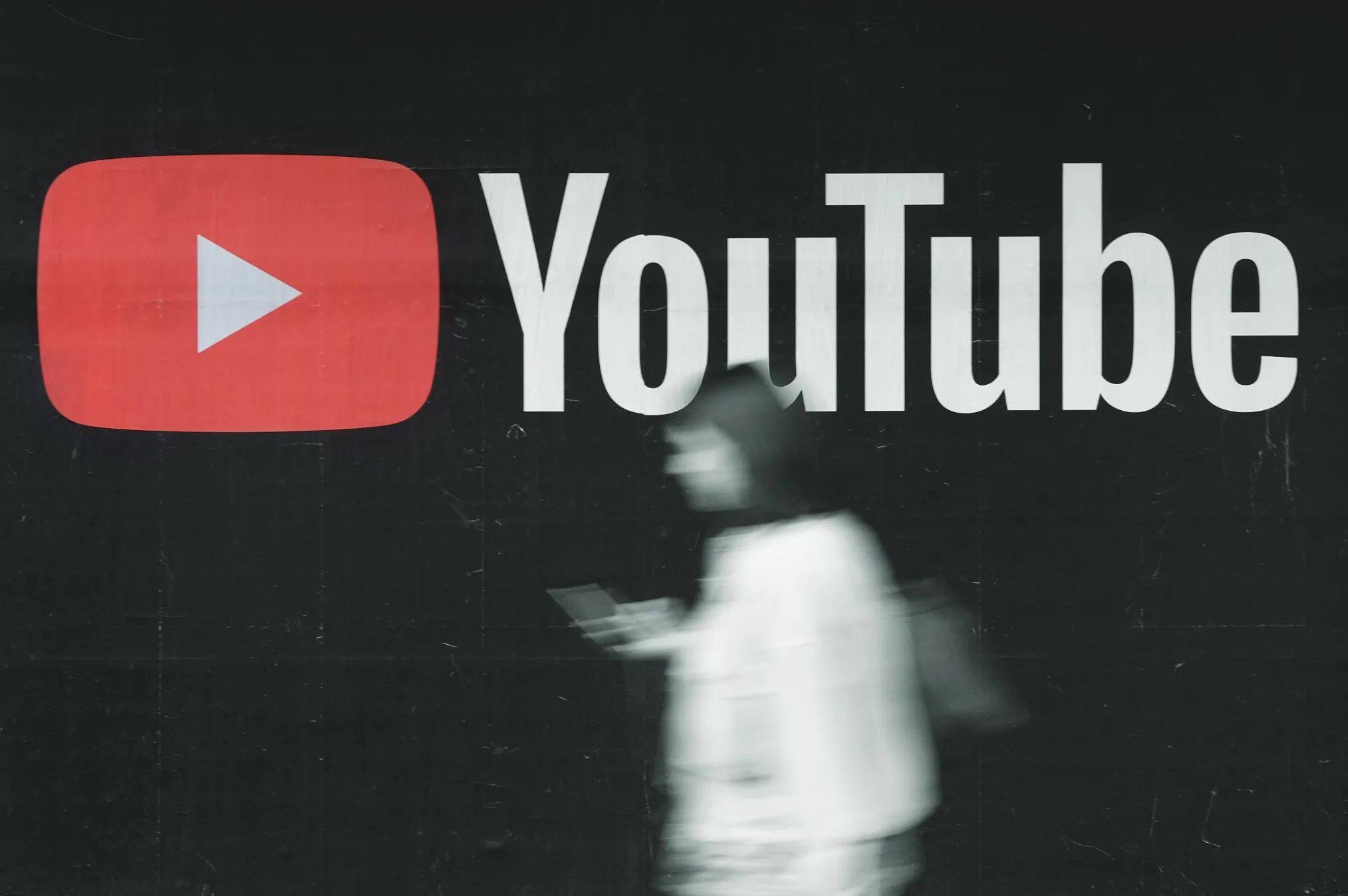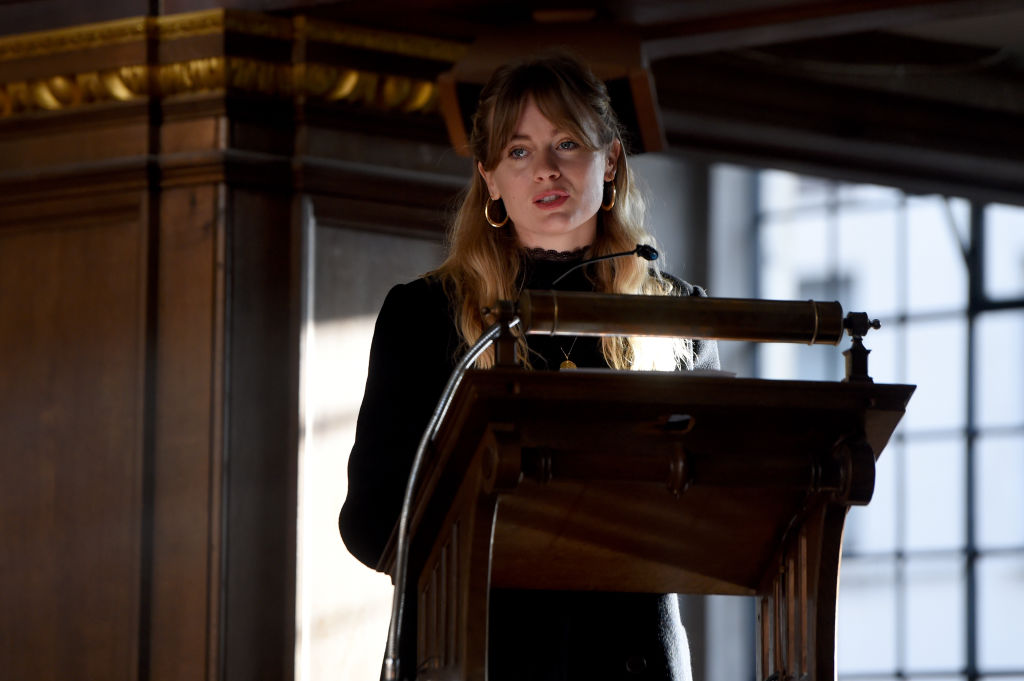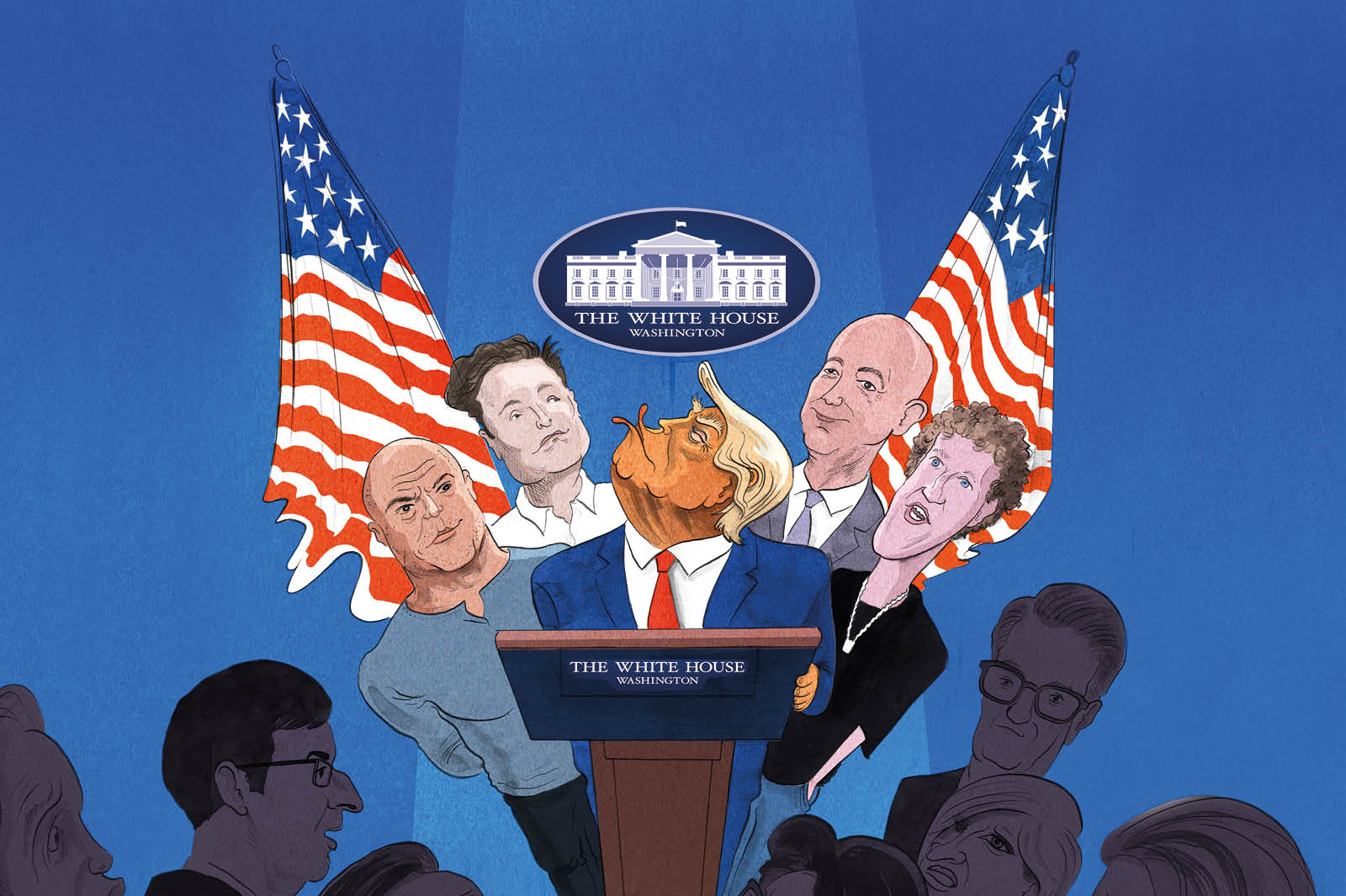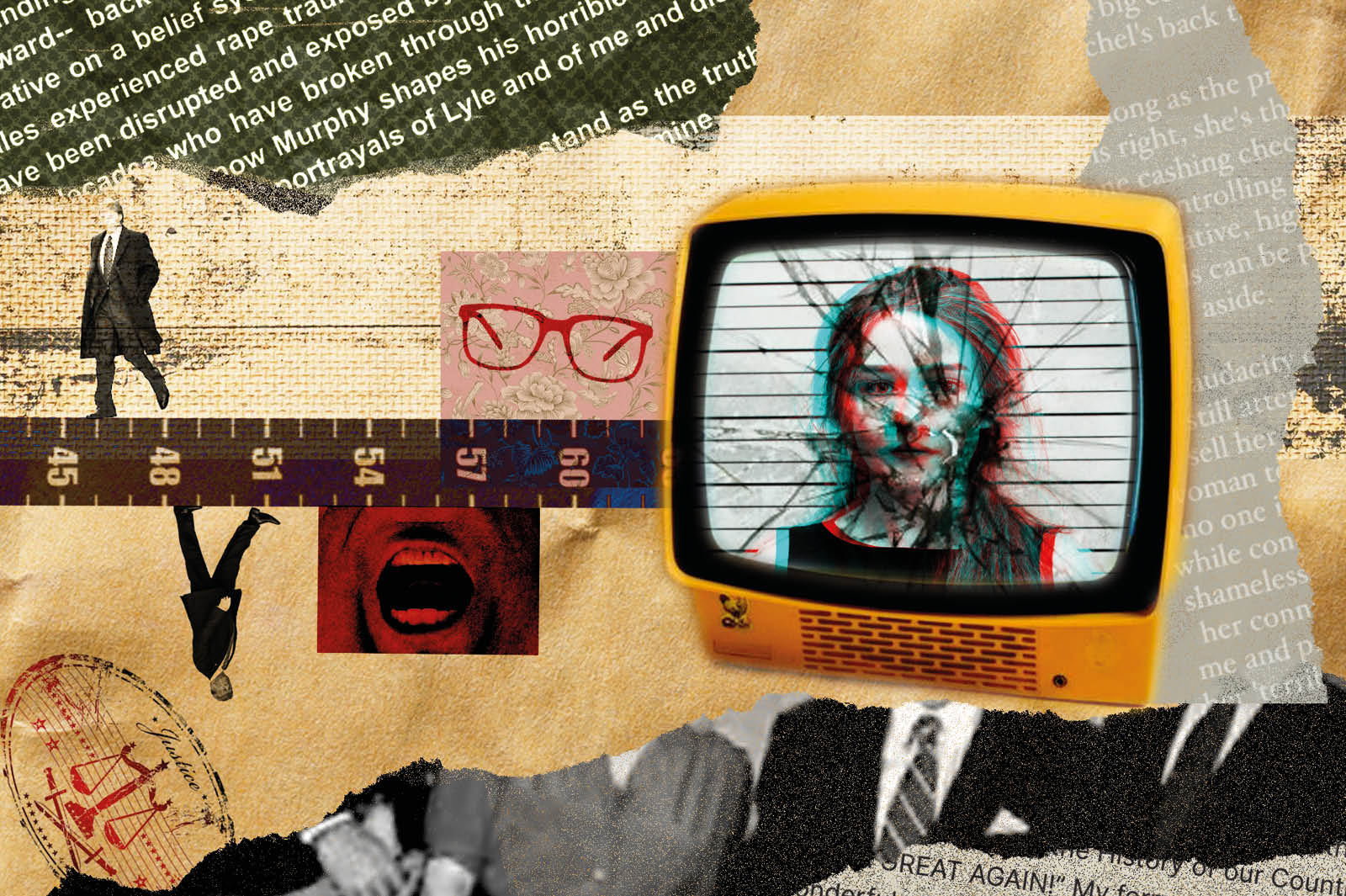It is incredibly hard to convey the fleeting invincibility and passionate self-significance that we feel on the cusp of adulthood. Youth goes: the skin fades, the face slackens, the lower back begins to groan in protest. The world dims and we dim with it. Yet generally speaking, we’re as personally winded by that realization as we are indifferent to it in others. When everyone suffers, no one cares. Why should I bother with someone else’s wasted youth? I’ve got one of my own right here.
Still, I was intrigued by the appearance of Once Upon a Time at…Bennington College, an eight-part oral history of three literary superstars’ time at university together. It’s a behind-the-wizard’s-curtain retelling of the time when Donna Tartt, Bret Easton Ellis and Jonathan Lethem were all members of Bennington College’s Class of ’86: the secret history of The Secret History.
The star is Ellis, a precocious, privileged writer who turns up with the face of a wounded teddy bear and a suitcase full of class-A drugs. His opposite number is Donna Tartt, a contained southerner who talks in wistful epigrams and appears “looking as if she’d arrived in Vermont on a steamship… none of her cultural references newer than J.M. Barrie.” Lethem (who provides the previous description of Tartt) occupies a more low-key position. Lethem is a fine writer, but even on campus Brett and Donna were the stars.
Bennington is a liberal college founded on loose anti-establishment principles in the middle of nowhere. It didn’t ask for SAT scores, charged the highest tuition in the country and attracted trust-fund artists and ambitious writers. Those not paying through their noses were let in on full scholarship. The drop-out rate was high, the professional standards liberal. “Back then,” says one graduate, “it was a badge of dishonor not to have slept with your professor.”
Whether Bennington in the mid-1980s is enough of a subject to bear a full eight-hour squint is another question. You can often hear the show’s talking heads straining to remember how campus reacted to some notorious party or gossipy article. For some graduates that period has acquired a mythical status. “When I was at Bennington, I felt like I was in a kind of I don’t know what — a time warp or a different dimension or something,” says Brix Smith Start, another Bennington alum and later the guitarist in the Fall. She describes her own private Neverland with the breathless credulity of someone who drank their own Kool-Aid years ago: “It was like all of us, collectively, were tapping the source. The energy was like nothing I’ve experienced any place else.”
The podcast is based on an oral history originally published in Esquire, and our host is the author Lili Anolik. As a journalist it’s hard not to admire her research. She seems to have interviewed everybody who ever heard the name Bennington, and makes some plausible identifications of the real-life sources for later fictional characters.
Less successfully, Anolik has decided to interpolate a narrative voice into her published oral history. This stream of continuous, tart aphorisms is delivered in gossipy tones over the waft and mulch of retro synthesizers. “In the previous episode we stepped past the velvet rope — or maybe it’s through the looking glass that we stepped — on the arm of Bret Easton Ellis,” begins one episode, before the narrator goes on to describe LA as “a noir utopia, a tropical Berlin […] a place that looks like a dream and feels like a nightmare.” By the 200th minute, the flood of tenuous euphuisms and tabloid puns begins to grate.
Then again, perhaps this is just the writer’s source material making its mark on her. When Less Than Zero, Ellis’s first novel, was circulated in manuscript form at Simon & Schuster, an editor wrote a note on the front sheet: “If there’s a market for callow fragmentary fiction about rich self-indulgent coke-sniffing… zombies, then let’s buy it.” Upon release the book was a commercial smash. Then there was a movie. Then an article about the making of the book, and now a podcast extending the article. The culture industry is so adroitly cannibalistic these days one barely notices.
Being young is different now. The universities are bigger and more professionalized. You need SATs to get to Bennington these days. The student celebrities are terminally online, not terminal boozers. (It was all Facebook groups when I attended, with the action moving to Twitter after the post-Trump algorithm change.) Unlike university, the internet is somewhere you never have to leave: a cosy world of micro-celebrity and reputation-laundering, where, though everyone keeps getting older, none of us ever grows up.
This article was originally published in The Spectator’s UK magazine. Subscribe to the World edition here.



